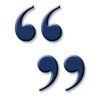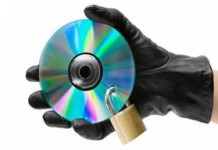
Shelf Awareness has a great quote of the day today from John Maninson CEO of Penguin Group:
“There is a growing distinction between the book reader and the book owner. The book reader just wants the experience of reading the book, and that person is a natural digital consumer: Instead of a disposable mass market book, they buy a digital book. The book owner wants to give, share and shelve books. They love the experience. As we add value to the physical product, particularly the trade paperback and hardcover, the consumer will pay a little more for the better experience.”


































This seems to be a distinction that they would like to create rather then one that actually exists.
And following their logic, the digital book reader should be paying a little less for for a lesser experience.
Bob W, I agree!!
And….there is no value to the trade paperback. They fall apart easier than MMP for heaven’s sake!
I, OTOH, think there is some validity to the argument. It is why I buy nonfiction and select fiction in hardcover and most fiction as an ebook.
Clearly this is a distinction for some people. I would argue that this is a transitory moment–just as there were once writers who wrote on word processors and writers who swore by their trusty Remington typewriters. Ultimately, paper goes away. Still, Penguin would like to make some money in the meantime.
Rob Preece
Publisher
I’d be more inclined to apply the word “experience” to the experience of reading a book. Owning a chunk of tree is not an “experience”, it’s an object.
As Richard Adin points out, it is a false dichotomy. Most of us are both owners and readers, owning (and reading) some books and only reading others. It was ever so, from the time when printed or hand-copied books were expensive, to today when shelf space is expensive.
There’s nothing new here; move along, folks.
“As we add value to the physical product, particularly the trade paperback and hardcover, the consumer will pay a little more for the better experience.”
Am I the only one who’s noticed that this ridiculous either/or invention is an excuse to raise prices on print books? Meaning that if readers are already priced out of print, the situation will become even worse. The result? Readers/owners will turn even faster to ebooks.
I agree with everyone above – this is a concoction, an imagined distinction that Mr Maninson ‘hopes’ he can latch on to to shore up sales.
What I don’t get is what he is referring to when he talks about “. . As we add value to the physical product . .” What is the added value he talking about ?
The first question goes to the central issue in book publishing today the rise of digital books and what they mean for print books. Right now the absolute sales figures for e-books look small but the rate of growth is tremendous. In 2009 for instance e-books made up only 2.3 percent of Penguins overall sales.
Nice sentiment; however they don’t take into account those, like myself, with limited LIVING space. Try fitting 500 books into a 400 sq ft home and see how well that works. LOL I personally love all types (digital or print) and as a retired librarian can only point out the flaw in the quoter’s thinking.
It’s just like the distinction between a horse rider and a horse owner. A horse rider just wants to get from Point A to Point B, and would happily use a bicycle, automobile, helicopter, or Aerial Faith Plate. But a horse owner is more interested in the feel and smell of the horse.
“But a horse owner is more interested in the feel and smell of the horse.”
…. yuk ! Is that legal ?
As it turned out, many more people preferred the convenience of cars to the smell of horses. And as it also turned out, cars were a lot cheaper.
Maybe both ownership and readership are unhelpful. Ownership suggests possession either momentary or persistent and readership suggests engagement either superficial or intensive. Displace all these projections or merge them all and you are still left with the book. The book is the transactional unit.
Transactions with books change over time. There was a big change in the shift from printing in Latin to printing in vernacular languages. Earlier there was an even bigger change from oral books to written books. Paper and screen books are actually fairly comparable except that paper display far outsells screen display of books.
What we should watch is changing identity of books as well as the transactions. Over time the identity has expanded. Some enclaves of mixed media production or book arts or LuLu publication or Amazon Singles stretch the book identity, but don’t seem to cause that much damage. Through a history of the book there has also been a continuity of interest in an ideal of the book with qualities of production, stimulation of engagement and thoughtful display. It would be a major achievement to extend the ideal of the book!
A very generalized statement that simply does not apply to all people… it’s pretty meaningless.
I’m hovering around a notion here, sparked by this post and by the one that said that authors (of a same rank) were basically interchangeable… so please bear with me.
I do think there’s a distinction between readers and owners, although I don’t think it breaks down as neatly into eformat v. paper as in the OP.
I have some dear friends who could easily afford to buy books, but they are confirmed library users. Once they’ve read the book they have no real interest in it any more, and if they want a re-read, they’ll take it out of the library again. Of course, no dichotomy exists in pure format, and they do have a select list of authors whom they buy to collect.
My husband is a book owner. He likes the physical feel of a book in his hands, likes to see it on the shelves around him (or, more recently, in stacks around him because we have more books than we have shelf space for.)
I like owning my books, but I don’t care what format. I’ll buy a book preferably in eformat, but if I can get it cheaper with a coupon or my Borders discount, I’ll buy it in paper. I back up my library in two places, because I don’t want to risk losing my books to a computer failure. It’s the content that I’m interested in, not the format.
My parents are in yet another category. They’re ebook readers, only read in eformat, and will only read a book if it’s free. I think they care much less than I do about the content – let’s call them process-oriented readers. For them, yes, authors of a given level and genre are interchangeable, as long as it’s free.
I note that no one has any idea what this ‘aded value’ Mr Maninson is referring to when he talks about trade paperbacks and hard covers.
Howard: “feel and smell”, “being surrounded by books”, “tangible object of value”.
It’s an argument that comes from the same place as “copyright violations are meaningless because the original isn’t affected”. It’s the attitude that only the physical world can have meaningful existence.
DD I agree but he says above ” As we add value to the physical product . . . ” inferring something more than before … any ideas ?